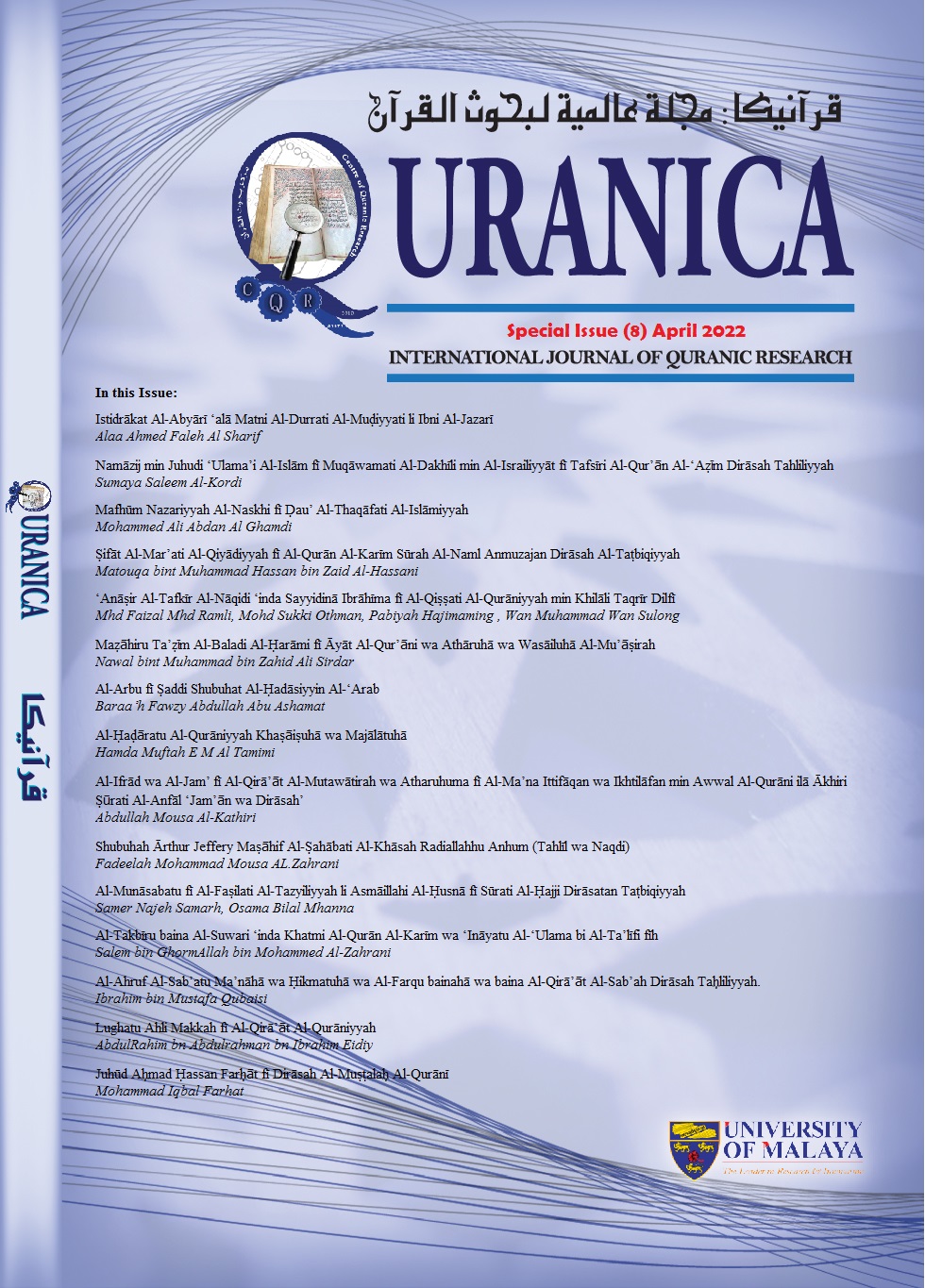Ṣifāt Al-Mar’ati Al-Qiyādiyyah fī Al-Qurān Al-Karīm Sūrah Al-Naml Anmuzajan Dirāsah Al-Taṭbiqiyyah
DOI:
https://doi.org/10.22452/quranica.vol14no1.12Keywords:
The Quran, Characteristics, Women, Leadership, Chapter al-Naml.Abstract
Research title: Leadership qualities of women in the Qur’an through Surah Al-Naml.Researcher: Matouqa bent Muhammad Hassan bin Zaid Al-Hassani The purpose of the research: Identifying the status of women in the period between the pre-Islamic era and Islam. Highlighting some of the leadership qualities of women. Derivation of verses signifying the leadership qualities of women (through Surah Al-Naml). It is clear from the previous point that the characteristics of the woman referred to in the Qur’an meet the truthfulness of the Holy Qur’an. The Holy Qur’an honors women and their important role in building society. Research plan: Includes an introduction and matters; The first matter: the status of women in the period between pre-Islam and Islam. The second matter: the concept of leadership. The third matter: Women mentioned in the Qur’an. The fourth matter: the leadership qualities of women through Surah Al-Naml. The most important results: The Qur’anic stories were not intended merely for entertainment, but rather carried connotations, gifts, and lessons, and the story of the Queen of Sheba conveyed that women are able to reach a level that men may be unable to achieve. It has been proven that women may acquire leadership qualities. The eligibility of women and their willingness to participate in political matters and at the highest levels, and the ability to make decisions, are manifested through verses. Verify the reality of the Qur’an through the leadership qualities possessed by the Queen of Sheba. The most important recommendations: Focusing on studying the characters in the Qur'an. Expanding the study of female characters in the Qur’an; especially the effecting women. Preserving the role of women in social life through the Holy Qur’an.Highlighting images of honoring women in the Holy Qur’an to respond to suspicions of reducing the role of women in the Qur’an.
Downloads
Downloads
Published
Issue
Section
License
Disclaimer
QURANICA makes every effort to ensure the accuracy of all its contents. However, opinions, discussions, views and recommendations are expressed in this journal do not necessarily reflect the official policy of QURANICA or views of its editors or publishers. Therefore, QURANICA and its publishers will not be liable for any controversy may be arisen. The journal reserves the right, at its sole discretion, to change its terms and conditions of publications.
Copyright
It is a condition of publication that manuscript submitted to the journal have not been published, accepted for publication, nor simultaneously submitted for publication elsewhere. By submitting a manuscript, the author(s) agrees that copyright for the article is transferred to the publisher, if and when the manuscript is accepted for publication.






